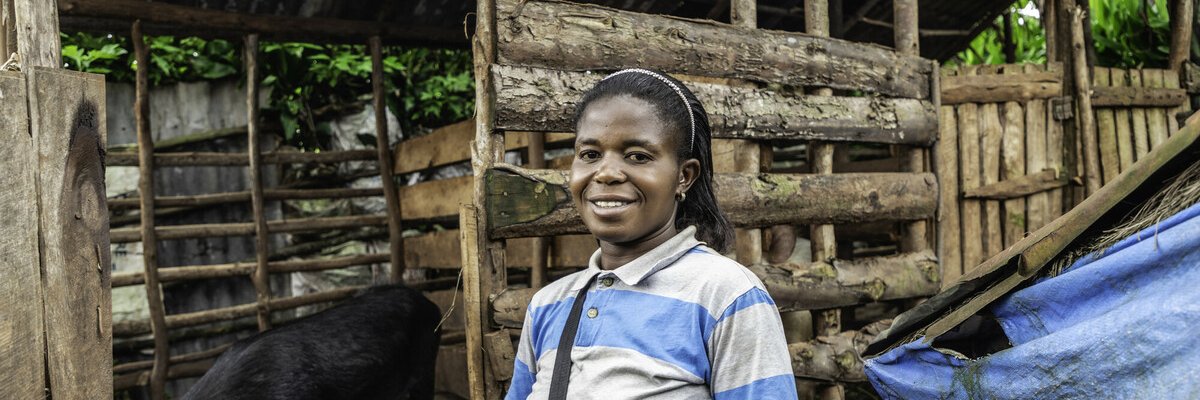5 minute read:
How pigs build peace & prosperity
In South Kivu province, DRC, there’s a grassroots community project run by Oxfam and APDIK.
It’s helped women farmers earn a better living, foster community growth and provide a peaceful coexistence after decades of conflict.
This project involves the simple yet innovative ‘rotating pigs’ scheme.
Here's how it works:
- A woman in each household receives three pigs - one male and two females - through community networks.
- It takes just under four months for each breeding cycle, and each litter has between 4 and 12 piglets.
- Weaning takes 2-3 months, after which three pigs must be returned to the community network.
- These are then given to other families, creating a sustainable cycle.
Why choose pigs?
“The advantages of this pig breeding are multiple...”
Ezechiel Mondo, Emergency Food Security and Livelihood Team lead in Bukavu
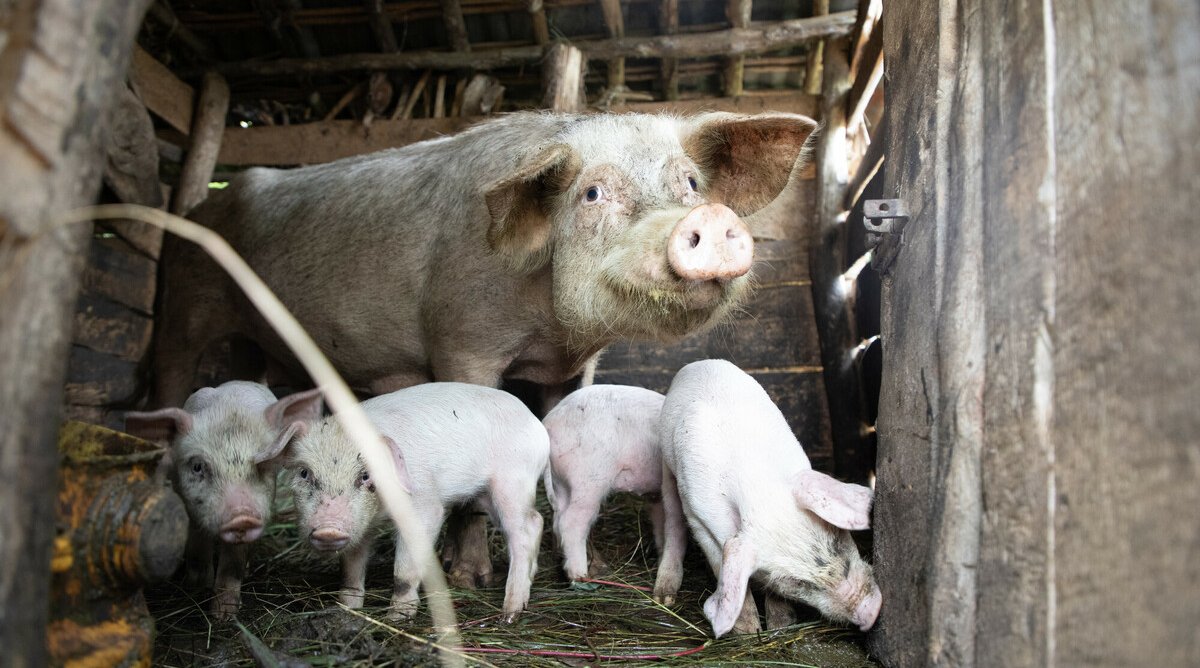
The ‘rotating pigs’ process consists in distributing pigs to families who are grouped through different networks. Each family received 3 pigs. After the females give birth, each family must return 3 pigs to the network. Credit: Narcisse K Chibangu / Oxfam
1. Quick turnaround
"Pig farming provides a lot of money in less time."
- Ezechiel Mondo, Emergency Food Security and Livelihood Team lead
Within 6 months of receiving the pigs from the networks, women can choose to breed their pigs again or sell them for at least $70. And with litters of up to 12 piglets - there's a lot of opportunity for profit.
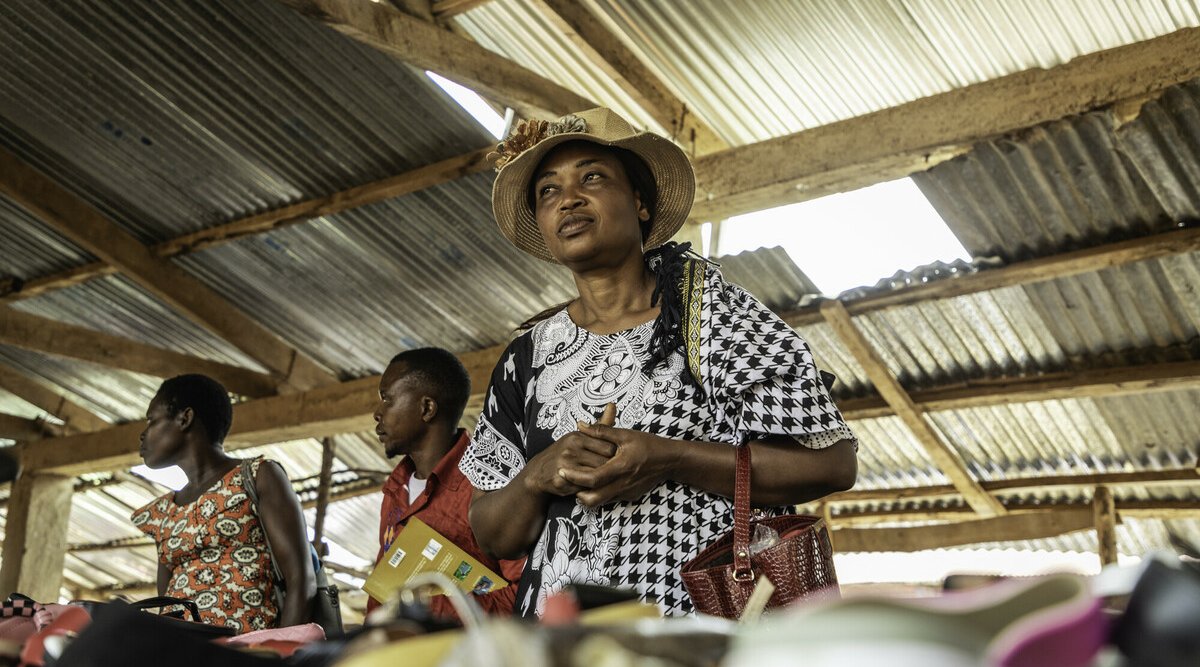
Zamuda Swayao Constance, participant of the BMZ project and guide to other women, at the large Burhinyi market with other women participants. Credit: Narcisse K Chibangu / Oxfam
2. High demand
"This is why the [farmers] in the village prefer this breeding because they benefit from it in a short time and the major customers are rich people..."
- Ezechiel Mondo, Emergency Food Security and Livelihood Team lead
Pork is highly desired and is often preferred by wealthy people for its lower risk of gout. This high demand means that farmers can sell their pigs quickly and consistently. The steady income stream helps build prosperity.
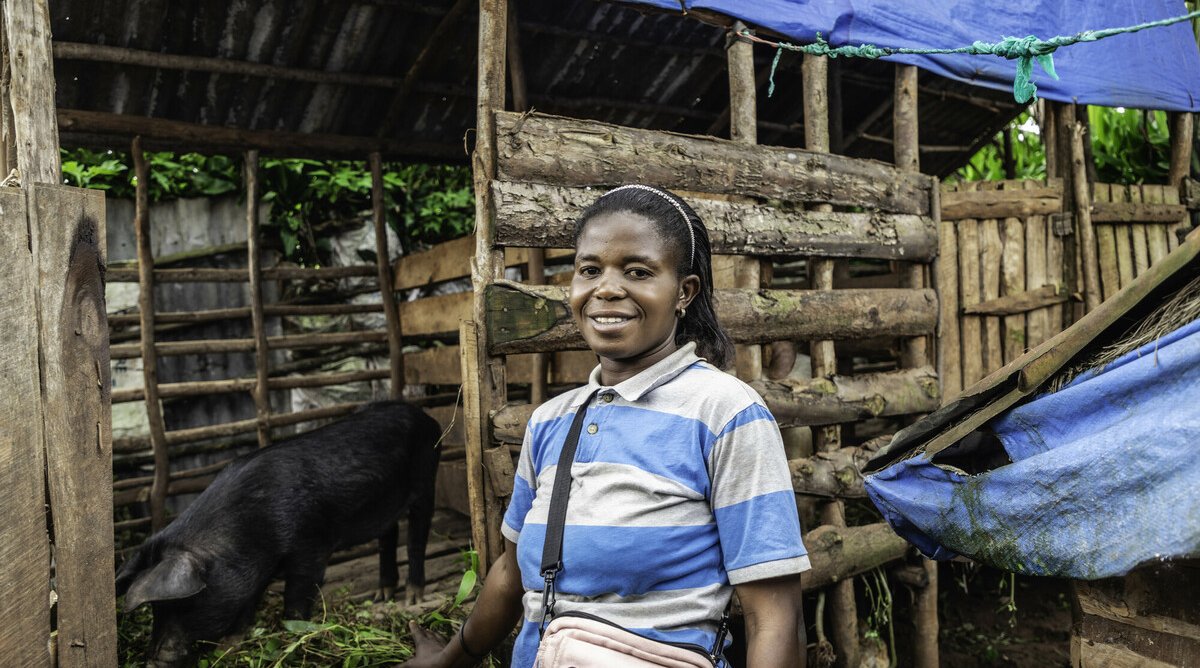
Marie Nsimire, farmer and participant of the BMZ project which helps women farmers earn a better living. Here she stands next to the pigs she acquired through the project. Credit: Narcisse K Chibangu / Oxfam
3. Enriched crops
"We are planting everything ... and it has given us so much joy. We were really behind before, we could not imagine reaping harvests or breeding pigs."
- Marie Nsimire, farmer and business woman
Through pig breeding, farmers are able to use the organic manure to naturally enrich the soil for their crops. This leads to healthier crops and more bountiful harvests - fighting malnutrition whilst increasing agricultural production.
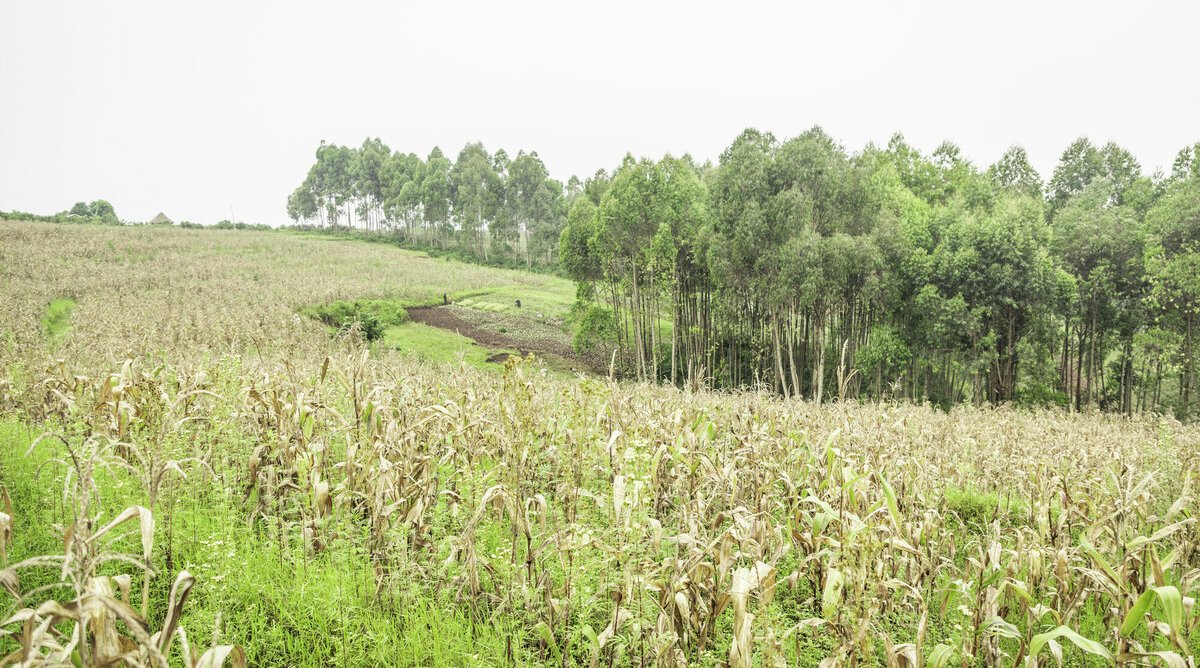
Corn growing in seed multiplication field in Lurhala, DRC, as part of the BMZ project run by Oxfam and APDIK. Credit: Narcisse K Chibangu / Oxfam
4. Diversified income
"The project also gave livestock breeding, that means it diversified the means of subsistence to this community which lived only from agriculture."
- Nelly Migani, agronomist and focal point
Pig breeding means farmers have more than one way to earn a living and sustain their community. This helps to protect them against things that impact farming like poor weather, crop failure, or unstable market prices.
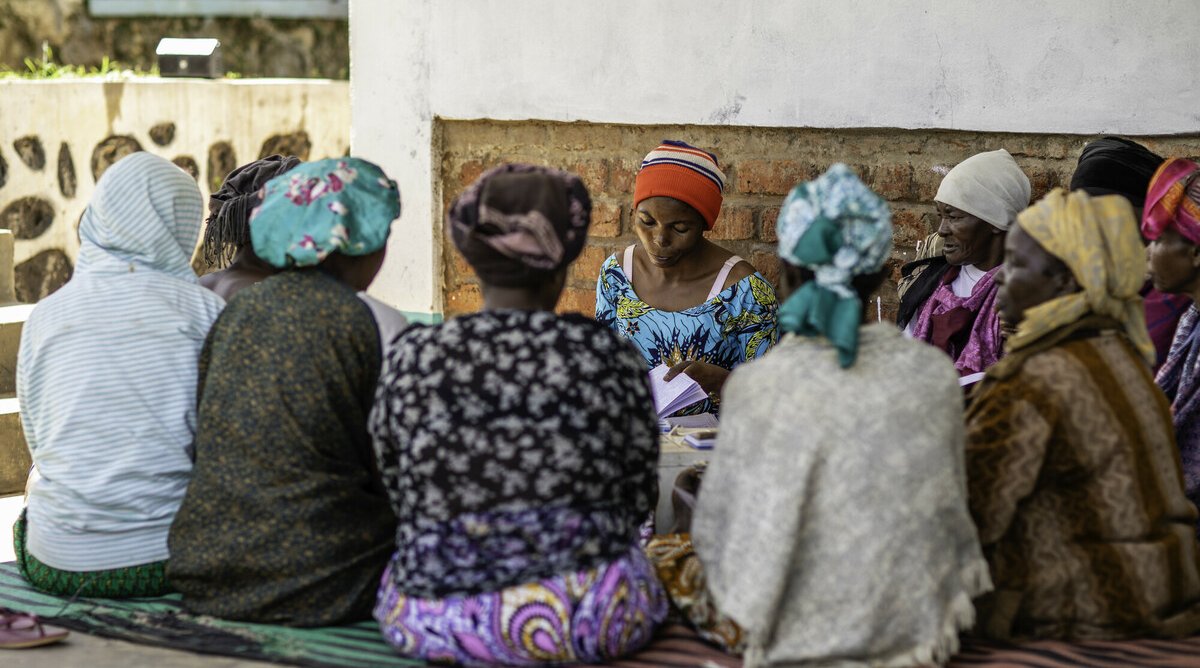
Murega Bahat leads a money collection session for the A.V.E.C savings group in Burhinyi chiefdom, South Kivu, DRC. Credit: Narcisse K Chibangu / Oxfam
5. Economic empowerment
"This social network and mutual support system is unlike anything we've had before - it has been revolutionary in building our confidence and self-reliance as women."
- Zamuda Swayau Constance, farmer and leader of the women's network
Women have increased their household income. And with community loans and savings schemes, they have more power over their own finances.
The money can be reinvested or spent on things they need - like household essentials and children's school fees. This builds long-term prosperity for everyone.
“If you asked me just one thing that I'm really proud of. I don't say this as an agronomist or as a partner, as I say it as a woman. And for me, one thing that I am proud of in this project is the fact that we’ve empowered women.”
- Nelly Migani, agronomist and focal point
More than just a farming project
“... once we produce in abundance, there is already the food seed, the vegetable seed. There are already veterinary products, meaning farmers are also capable of treating these animals. They are already able to care for their animals. They already have country products, livestock products. There we can transform. And that’s sustainable development.”
Emmanuel Mihigo, agronomist in rural development and Lurhala village chief
Context: Conflict in DRC
Fragile peace in South Kivu
South Kivu is a region in eastern DRC.
- 2014: Warlords and armed groups began operating in the Walungu territory, South Kivu.
- 2016: Some of these warlords had surrendered and joined the national army. In Burhinyi, other groups hiding in the Itombwe mountains continued to threaten local communities.
- 2018: The situation in these areas has stabilised. But people are still rebuilding from years of disruption, loss and displacement.
Marie Nsimire, farmer and participant of the BMZ project which helps women farmers earn a better living. Here she stands next to the pigs she acquired through the project. Credit: Narcisse K Chibangu / Oxfam
Oxfam in DRC
Oxfam has worked in DRC since 1961 and currently operates in several provinces including Equateur, North Kivu and South Kivu.
We collaborate closely with partners on a range of projects. Like grassroots peacebuilding projects in South Kivu. And mounting an emergency response to the recent mpox outbreak in Equateur.
Marie Nsimire, farmer and participant of the BMZ project which helps women farmers earn a better living. Here she stands next to the pigs she acquired through the project. Credit: Narcisse K Chibangu / Oxfam
